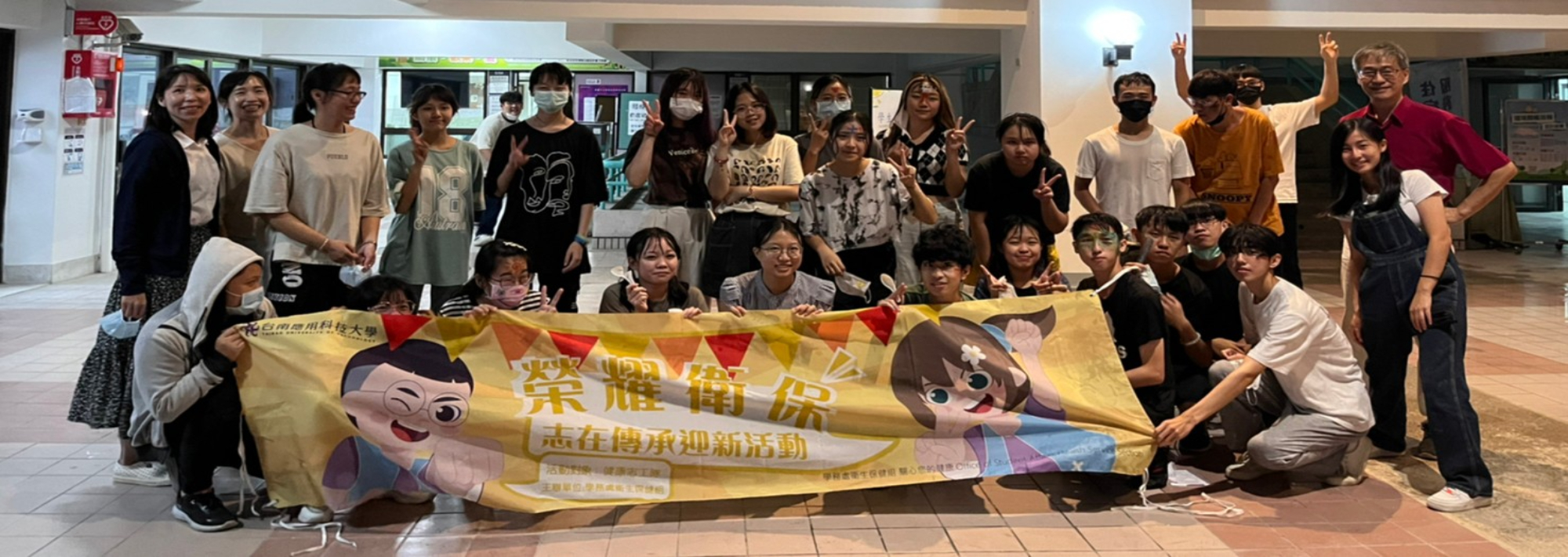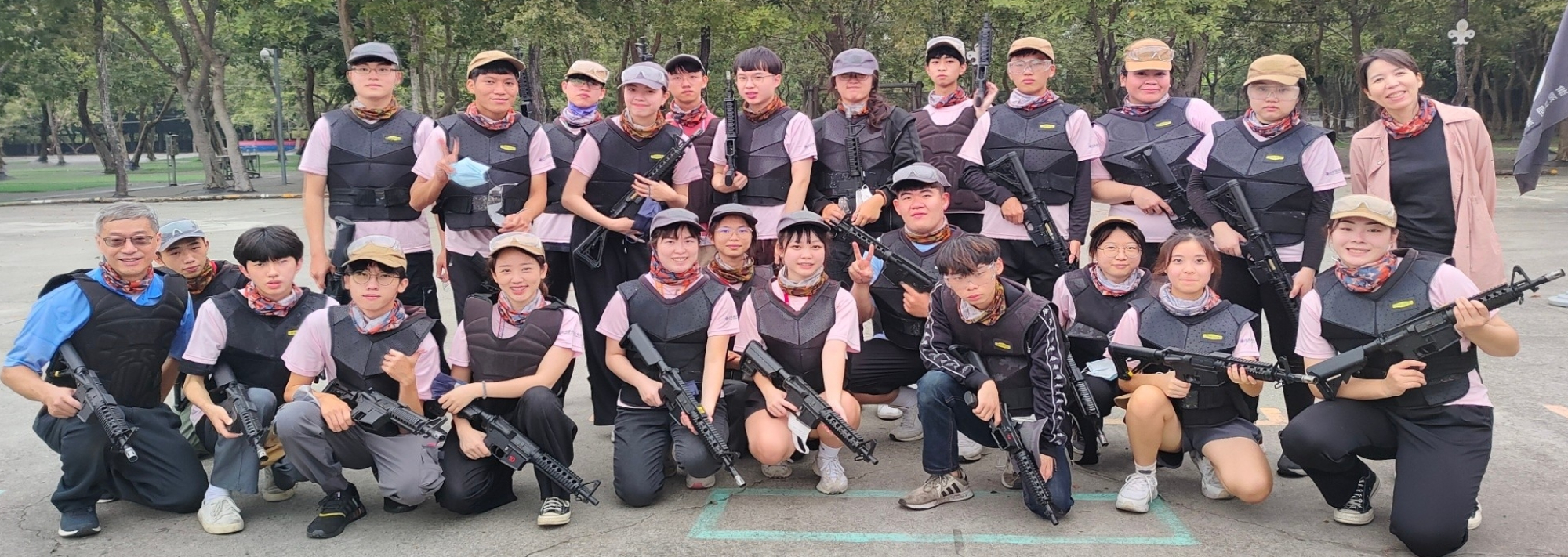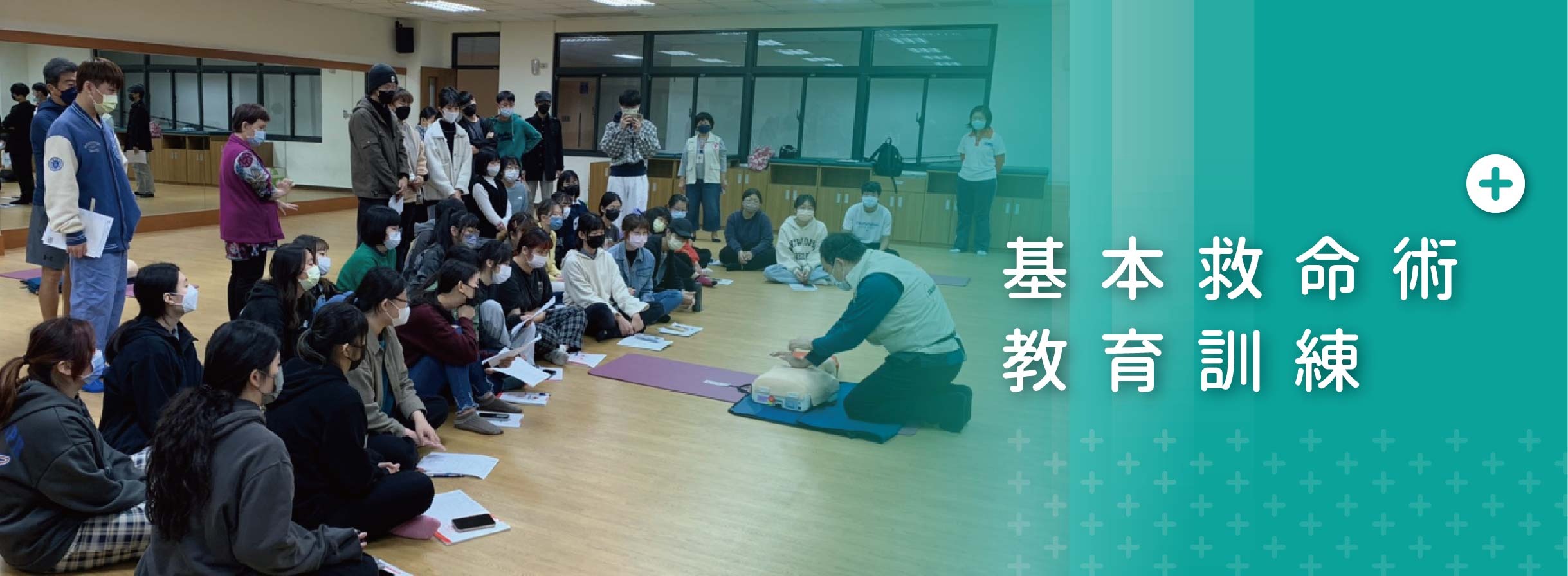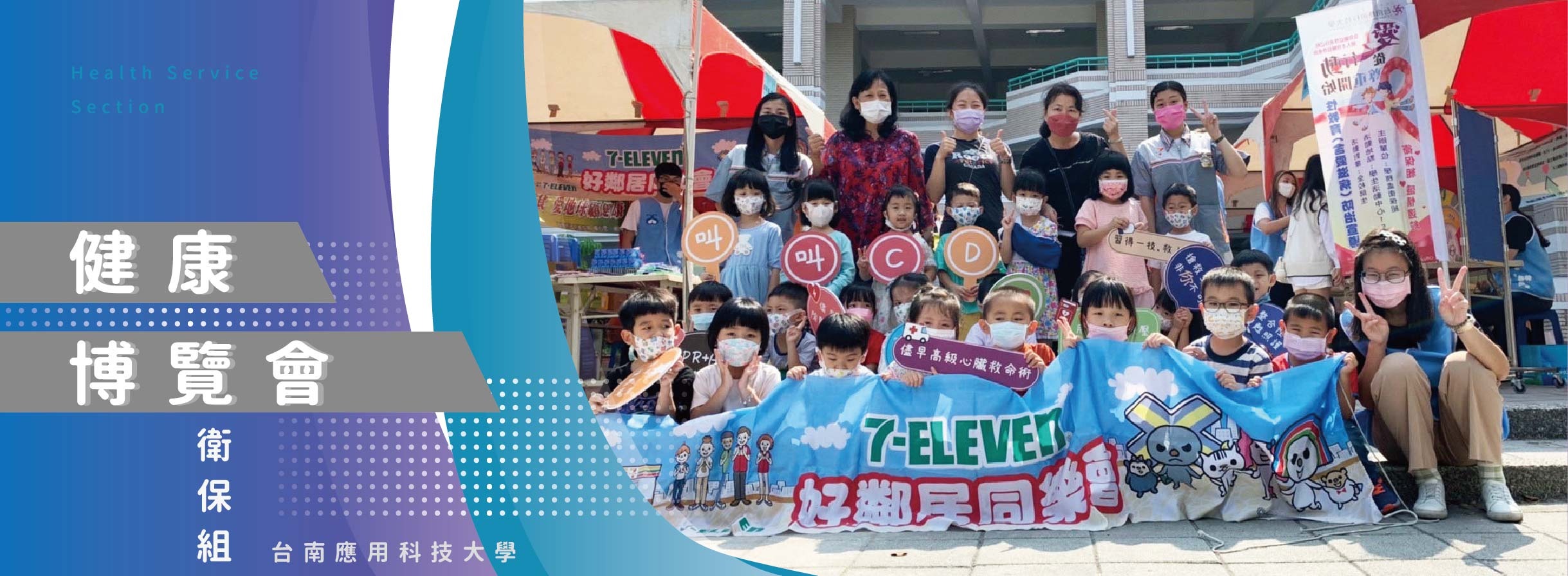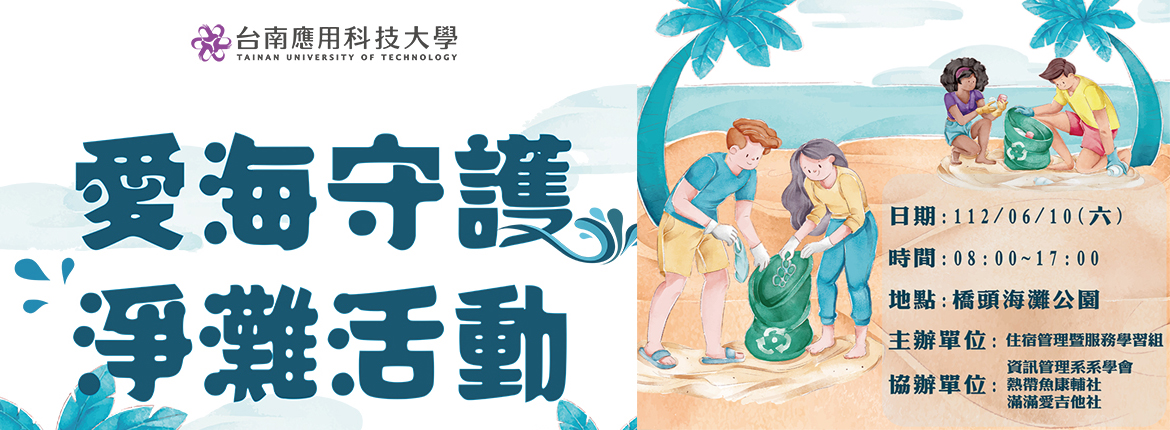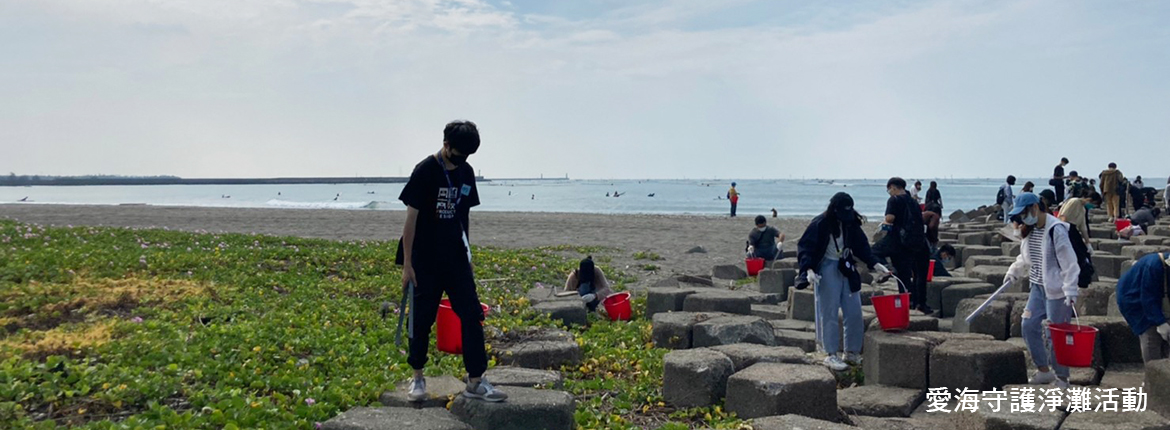Health services
I. Service hours
1.Wound care and emergency care.
Daytime School: Monday-Friday 08:10~17:00, Health Care Section (Student Activity Center 1F, 06-2530347).
Nighttime School: Monday-Friday 17:00-21:45, Further Education Department Student Affairs Section (Yule Hall 1F, 06-2533488).
Other time: In case of emergency, please contact the school security staff (1FCKS Building, 06-2539580).
2. Health Consultation Service:
*The school doctor is available every Tuesday and Thursday from 14:00~15:00.
*Chinese medicine clinic hours are 12:30~13:30 on odd Mondays.
*Nutritionist consultation service hours are 15:00~17:00 every Wednesday.
II. Health check ups: The health checkups are used to understand the health status of students and provide timely follow-up counseling.
1. Health checkups for new students, faculty and staff, and campus catering staff are held every school year.
2. Health Screening: Height, weight, blood pressure, chest X-ray, general blood test, color vision test, hepatitis B surface antigen and antibodies, vision test, liver function, cholesterol, blood fat, blood sugar, and urine test.
3. The screening of special diseases after the examination will be followed up and counseled.
4. General instructions on the implementation of student health examination, the implementation of student health examination, and school health law.
III.Health Services
1.Trauma diagnosis and treatment and first aid treatment: trauma hemostasis, dressing, hot and cold compresses, burns, sports injuries, shock and general disease management. Emergency medical treatment.
2. Emergency medical treatment.
3. blood pressure measurement, blood sugar testing and other services.
4. Health care guidance for epidemic diseases.
5. to provide students with rest and observation care due to illness.
6. medical kits and first-aid supplies borrowing: all departments or faculty members can borrow medical kits from the Health Center when they go out for activities.
7. medical supplies for residential students can be replenished or replaced at the Health Center from time to time.
8.First-aid supplies such as crutches, wheelchairs, splints and triangular towels can be borrowed.
IV.Health Education
1. Signing a contract of cooperation with neighboring medical institutions.
2. Promote community health services with neighboring medical institutions.
3. organize ambulance volunteer training and education.
4. organize health care seminars.
5. Health screening abnormalities tracking and counseling: individual and group health education counseling.
6. To promote student health education, improve students' health knowledge, develop good health habits, and assist students in solving health problems.
7. to strengthen the management of infectious diseases and preventive health care to maintain the health of teachers and students.

